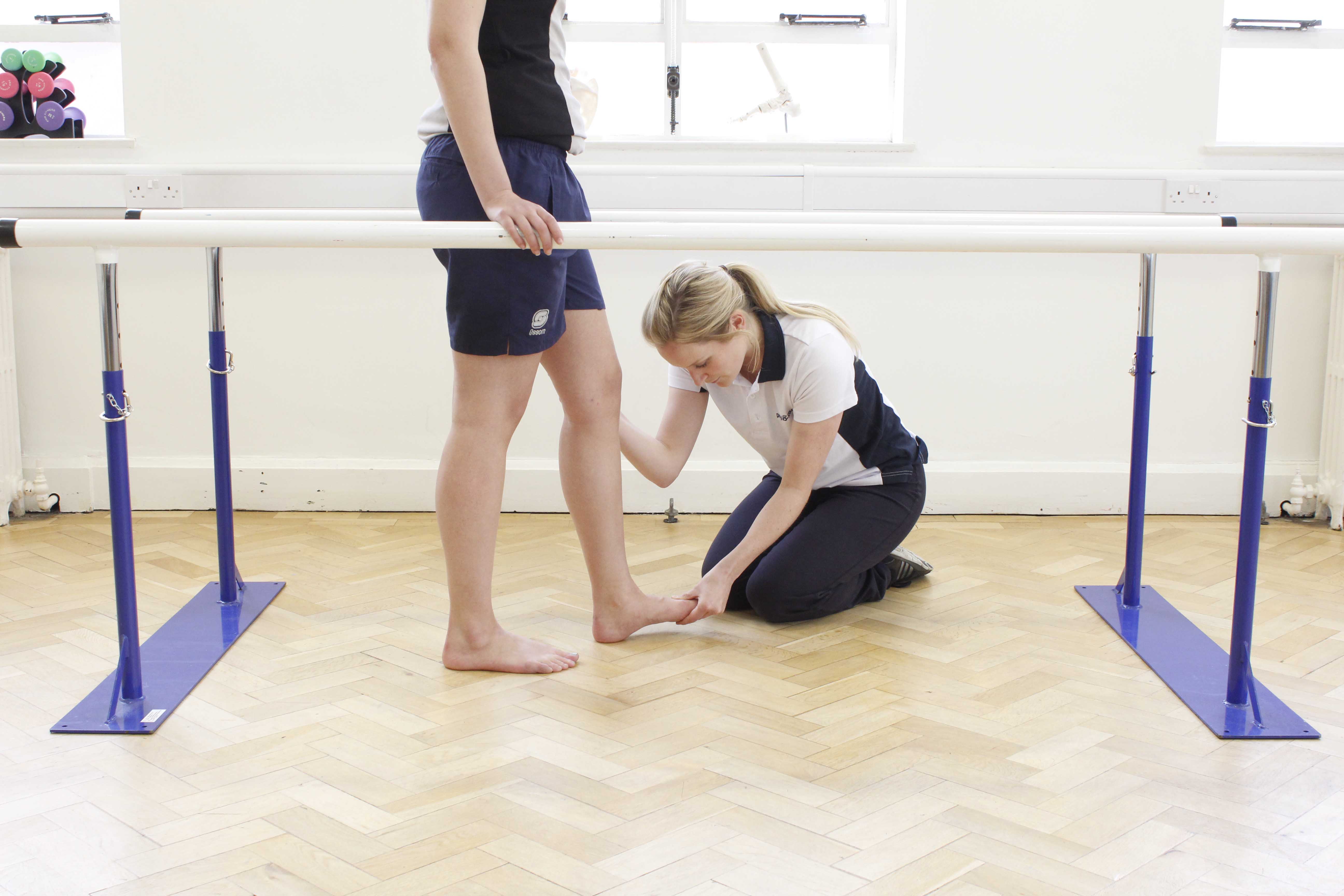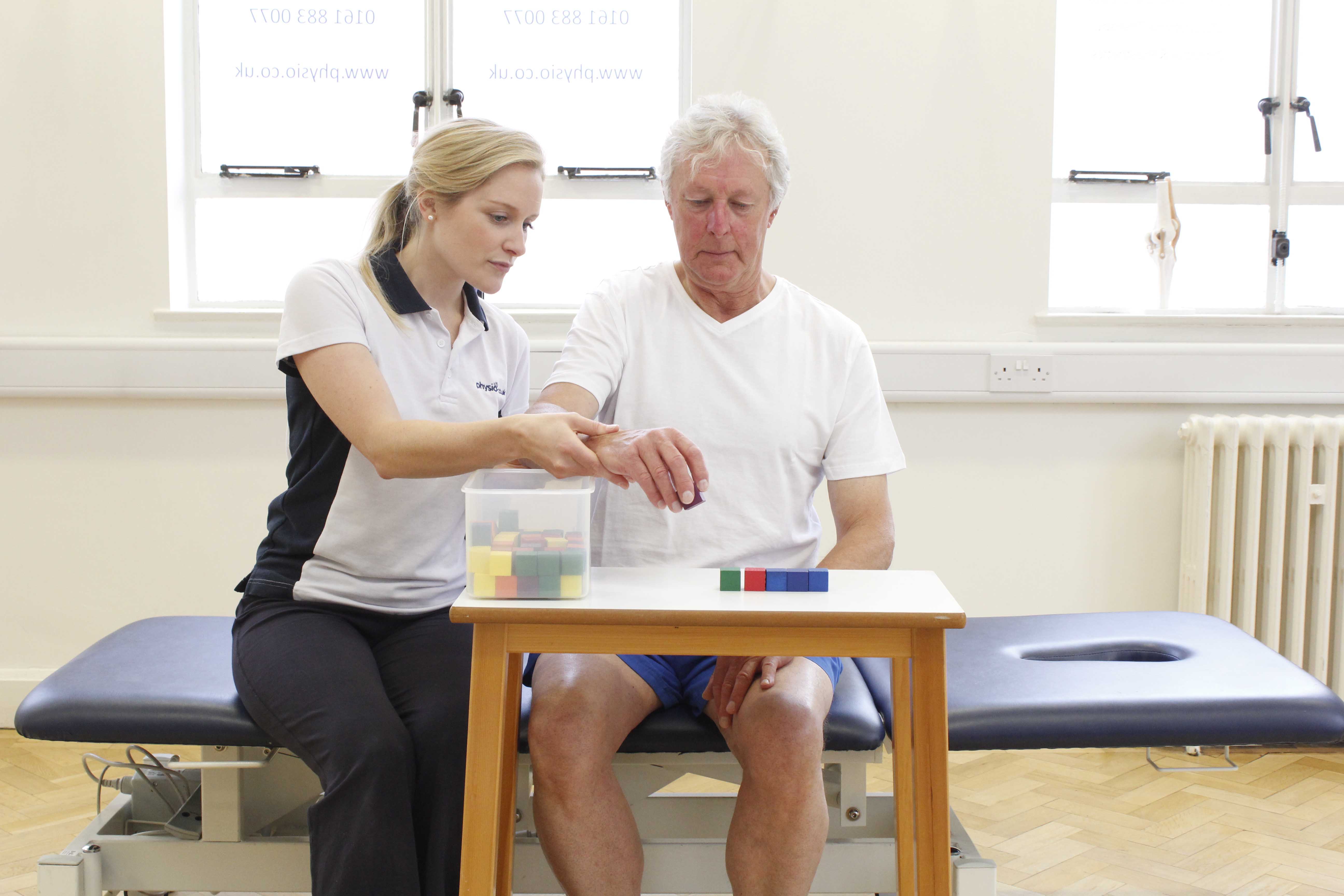What is apraxia?
Apraxia is a neurological disorder characterised byloss of the ability to select and sequence fine and gross motor skills. A person will apraxia will have difficulty with activities of daily living, such as stopping or starting to walk, eating, dressing and washing. Apraxia can also affect communication skills. Apraxia results from damage to the brain caused by stroke, dementia, tumours or a head injury. People with apraxia usually have the physical strength and understanding to move but cannot effectively demonstrate this.
Physiotherapy will help a person with apraxia relearn the ways to move and carry out functional activities to increase safety and independence at home.
 Above: Straight leg raises performed uder the supervision of a apecialist neuological physiotherapist
Above: Straight leg raises performed uder the supervision of a apecialist neuological physiotherapistDiagnosis of apraxia
Diagnosis is made by a neurologist who will conduct a thorough physical examination as well as brain imaging (for example, CT or MRI) to identify the areas of the brain affected.
What causes apraxia?
Apraxia is caused by damage to the areas of the brain that contain memories of learned movement patterns. Damage to the brain is often a result of a stroke, tumour or head injury or related to degeneration(dementia).
 Above: Fine motor skills and co-ordination exercises supervised by a neurological physiotherapist
Above: Fine motor skills and co-ordination exercises supervised by a neurological physiotherapistTypes of apraxia?
There are several kinds of apraxia. The types of apraxia that physiotherapists commonly treat include:
- Buccofacial or orofacial apraxia – the inability to perform facial movements on command such as licking lips, whistling, coughing, or winking.
- Limb-kinetic apraxia - the inability to make fine, precise movements with an arm or leg
- Ideomotor apraxia - the inability to make the proper movement in response to a verbal command
- Ideational apraxia - the inability to coordinate activities with multiple, sequential movements, such as dressing, eating, and bathing
What are the symptoms/effects of apraxia?
The symptoms of apraxia may vary from person to person depending on the area of the brain affected. Symptoms may include:
- Difficulty with learned purposeful movements such as getting out of bed, walking, dressing, washing and eating.
- Difficulty using everyday tools (for example, eating utensils, toothbrush, kitchen utensils and scissors).
- Reduced mobility
- Poor balance
- Risk of falls
Physiotherapy for apraxia
Physiotherapy at Physio.co.uk helps people with apraxia relearn skills that are lost when part of the brain is damaged. Our neurological physiotherapists at Physio.co.uk also teach people new ways of performing tasks to compensate for difficulties with complex activities.
An initial assessment will determine your individual ability with everyday tasks, and from this a structured treatment plan will be developed so that you reach your maximum physical potential.
Physiotherapy treatment will depend on your individual needs but may include:
- Breaking down complex tasks and practicing isolated movements to stimulate pathways in the brain. This is then progressed to rehearsing functional activities. For example, coordinating leg movements in order to improve walking.
- Exercises to encourage participation in new activities
- Promoting independent movement through facilitation and prompting
- Activities to improve coordination and balance
- Exercises to increase muscle strength in the trunk and shoulder to improve coordination and fine motor skills. Strengthening activities of the pelvic girdle will improve balance.
- Advice on mobility equipment such as frames, sticks and wheelchairs if necessary.
- Teaching and advising family and or carers on transfers and mobility so that you are safe at home.
For more information or to book an appointment please call 0330 088 7800.

 0330 088 7800
0330 088 7800

































